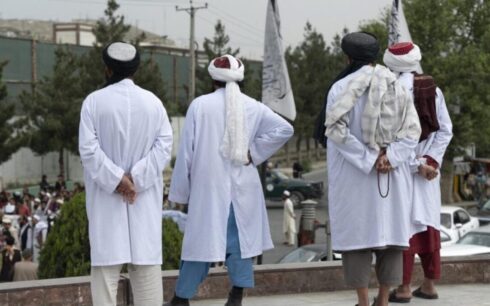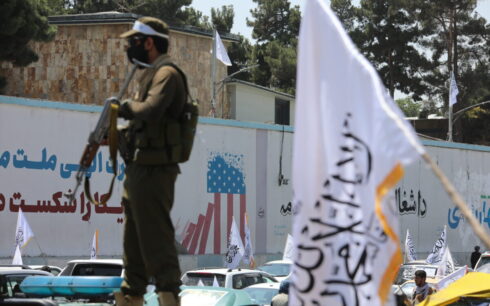Richard Bennett, the UN Special Rapporteur on human rights in Afghanistan, on Tuesday called for the formal recognition of gender apartheid as a legal framework to address the Taliban’s systemic oppression of women and girls.
Speaking at a side event during the 59th session of the U.N. Human Rights Council, Mr. Bennett said such recognition would be a crucial step toward accountability and justice.
On the second day of the Council’s session, a series of events focused on Afghanistan drew attention to the country’s worsening human rights situation, with calls for stronger international mechanisms and urgent responses to the growing crisis.
“There is a need for more pathways to accountability, including survivor-centered approaches,” Mr. Bennett said at a session titled ‘From Call to Action: Designing an Effective Investigative Mechanism for Afghanistan.’ “One such pathway—raised by civil society and fully supported by me—is the codification of the concept of gender apartheid. It is a term long used by Afghan women, and I support it completely.”
Also speaking at the event, Nasir Ahmad Andisha, Afghanistan’s permanent representative to the United Nations in Geneva, emphasized the role of civil society and research-driven mechanisms in documenting violations and promoting justice.
“Your work as civil society organizations is crucial,” Mr. Andisha said. “Take this advocacy from Geneva to New York and the U.N. General Assembly. I hope, and believe, your voices will be heard. We need both an independent fact-finding mechanism and targeted sanctions against those responsible.”
Farhesta Abbasi, a researcher with Human Rights Watch, warned that the human rights crisis in Afghanistan remains one of the most severe in the world, calling on the Council to respond with urgency.
“The situation in Afghanistan is dire,” Ms. Abbasi said. “Afghan women and girls—survivors—deserve equal access to justice. We must not allow a hierarchy of victims, nor tolerate double standards. The Human Rights Council has a responsibility to act, and Afghanistan is among the most serious crises on its agenda.”
The 59th session of the Human Rights Council opened on Monday, June 16, and will continue through July 9. On its opening day, Mr. Bennett presented his latest report on Afghanistan to the Council’s plenary session, detailing deteriorating conditions under Taliban rule, including restrictions on women’s rights, freedom of expression, and access to education.





